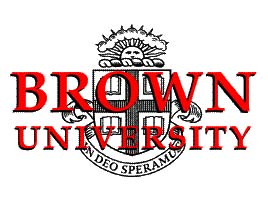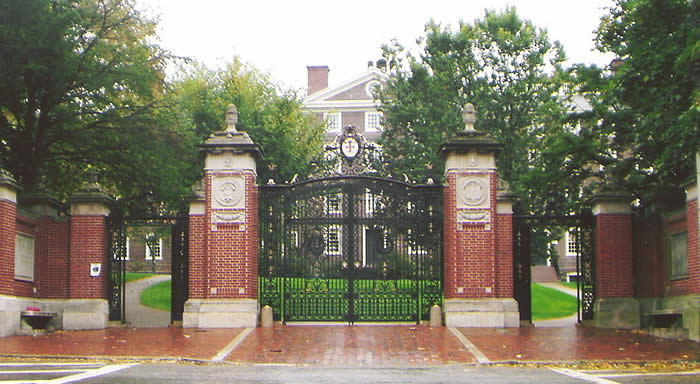CONCERT WE PRESENTLY KNOW ABOUT
|
BROWN UNIVERSITY


Brown University
is a private university located in Providence, Rhode Island. Founded in 1764 as
Rhode Island College, it is the third-oldest institution of higher education in
New England and
the seventh-oldest in the United States. It is a member of the
Ivy League.
Brown was the first college in the nation to accept students of all religious
affiliations. Brown has the oldest undergraduate engineering program in the Ivy
League (1847), the only undergraduate Egyptology department in the Western
Hemisphere, and, until recently, the only History of Mathematics department in
the world (housed in the same building as Egyptology). Brown was also one of the
first institutions to emphasize computer science as well as media studies, with
its department of Modern Culture and Media, where students study film
production, film criticism, and critical theory.
The Brown "New Curriculum," instituted in 1969, eliminates distribution
requirements and mandatory A/B/C grade (allowing any course to be taken on a
"satisfactory/no credit" basis). Moreover, there are no pluses (+) or minuses
(-) in the grading system.
Since 2001, Brown's current and 18th president is Ruth J. Simmons, the first
African American president, and second female president, of an Ivy League
institution, as well as the first permanent female president of Brown.
(borrowed from http://en.wikipedia.org/wiki/Brown_University)
HISTORY
The founding of Brown
In 1763, James Manning, a Baptist minister, was sent to Rhode Island by the
Philadelphia Association of Baptist Churches in order to found a college. At the
same time, local Congregationalists, led by James Stiles, were working toward a
similar end. On March 3, 1764, a charter was filed to create Rhode Island
College in Warren, Rhode Island, reflecting the work of both Stiles and Manning.
The charter had more than 60 signatories, including John and Nicholas Brown of
the Brown family, who would give the College its present day name. The college's
mission, the charter stated, was to prepare students "for discharging the
Offices of Life" by providing instruction "in the Vernacular Learned Languages,
and in the liberal Arts and Sciences." The charter's language has long been
interpreted by the university as discouraging the founding of a business school
or law school. Brown continues to be one of only two Ivy League colleges with
neither a business school nor a law school (the other being Princeton).
The charter required that the makeup of the board of thirty-six trustees include
twenty-two Baptists, five Friends, four Congregationalists, and five
Episcopalians, and by twelve Fellows, of whom eight, including the President,
should be Baptists "and the rest indifferently of any or all denominations." It
specified that "into this liberal and catholic institution shall never be
admitted any religious tests, but on the contrary, all the members hereof shall
forever enjoy full, free, absolute, and uninterrupted liberty of conscience."
The Encyclopedia Britannica Eleventh Edition remarks that "At the time it was
framed the charter was considered extraordinarily liberal" and that "the
government has always been largely non-sectarian in spirit.""Providence."
Encyclopedia Britannica. 1911. 11th edition. Vol 22 (POL-RHE). p. 511c:
(Makeup of board, 22 Baptists, etc. No religious tests for admission.
"Considered extraordinary liberal.")
James Manning, the minister sent to Rhode Island by the Baptists, was sworn in
as the College's first president in 1765. Rhode Island College moved to its
present location on College Hill, in the East Side of Providence, in 1770 and
construction of the first building, The College Edifice, began. This building
was renamed University Hall in 1823. The Brown family were instrumental in the
move to Providence, funding and organizing much of the construction of the new
buildings. The family's connection with the college was strong: Joseph Brown
became a professor of Physics at the University and John Brown served as
treasurer from 1775 to 1796. In 1804, a year after John Brown's death, the
University was renamed Brown University in honor of John's nephew, Nicholas
Brown, Jr., who was a member of the class of 1786 and contributed $5,000 (which,
adjusted for inflation, is approximately $61,000 in 2005, though it was
1,000 times the roughly $5 tuition) toward an endowed professorship. In 1904,
the John Carter Brown Library was opened as an independent historical and
cultural research center based around the libraries of John Carter Brown and
John Nicholas Brown.
(borrowed from http://www.myplan.com/colleges/undergraduate-colleges/brown-university/articles-217156.html?aid=321)

The Brown family was involved in various business ventures in Rhode Island,
including slavery; the family itself was divided on the issue. John Brown had
relentlessly defended slavery, while Moses Brown and Nicholas Brown Jr. were
fervent abolitionists. In recognition of this history, the University
established the University Steering Committee on Slavery and Justice in
2003.Howell, Ricardo (2001, July). "Slavery, the Brown Family of Providence and
Brown University." Brown University News Service
Brown began to admit women when it established a Women's College in 1891, which
was later named Pembroke College. "The College" (the undergraduate school)
merged with Pembroke College in 1971 and became coeducational.

Spring Weekend
Starting in 1950, Brown replaced the traditional Junior Week and Junior Prom, which were discontinued during World War II, with Spring Weekend, which featured athletic contests and dances. Concerts featuring invited performers began in 1960.Mitchell, Martha. (2003). "Spring Weekend." Encyclopedia Brunoniana. On the campus these concerts were held in various loctions including Pembroke Field, the College Green, Alumnae Hall, Marvel Gym, Meehan Auditorium. (Click venue to read history).
Lastly, we need to mention the two record stores that made Brown University a cool place. The first one was BSA Records which was located in the Faunce House Post Office lobby. After that it was Mother Records that took over the space and thived as a student run business.
CONCERT WE PRESENTLY KNOW ABOUT
|